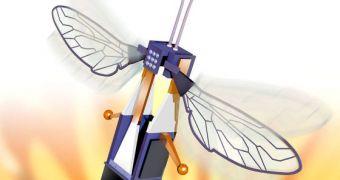The US National Science Foundation (NSF) started its Expeditions in Computing initiative this August, which aims at promoting innovative research in specific, computer-related fields. One example would be the creation of energy-efficient computers that would be especially designed for a specific type of applications. A second direction for research is the creation of new tools to make air flight safer and faster. The third and final Expedition relates to emergency-response technologies, including a robotic “bee” that can assist rescue operations.
“NSF supports Expeditions in Computing to stimulate and leverage the tremendous creativity of the computing research community. The projects we support allow academic researchers and their collaborators to explore ideas that promise significant advances in our understanding of the computing frontier, while also yielding great benefit to society,” the Deputy Assistant Director at the Directorate for Computer and Information Science and Engineering (CISE), Deborah Crawford, says.
Each of the new projects is funded by a $2-million-per-year, five-year grant, which will ensure continued innovation in each of these developments. “This year's Expeditions projects are driven by challenge problems that arise from the most pressing issues facing our society today – groundbreaking research shaped by societal needs,” NSF Expeditions Program Officer Mitra Basu adds. Each of the new awards features a principal investigator, aided by a number of collaborators, from various research institutes, universities and the industry.
“In the last two competitions, the research community has responded with great creativity and enthusiasm. We are now eagerly awaiting the arrival of the next set of Expeditions proposals,” Basu explains. The NSF started awarding these grants in 2008, when four Expeditions were funded, with money appropriated for the agency via the American Recovery and Reinvestment Act (ARRA). Now, NSF officials are waiting for a new set of proposals in the field, which they will be able to fund next year. This type of approach to making science, analysts say, provides serious incentives for investigators to push the limits of science forever further.

 14 DAY TRIAL //
14 DAY TRIAL //